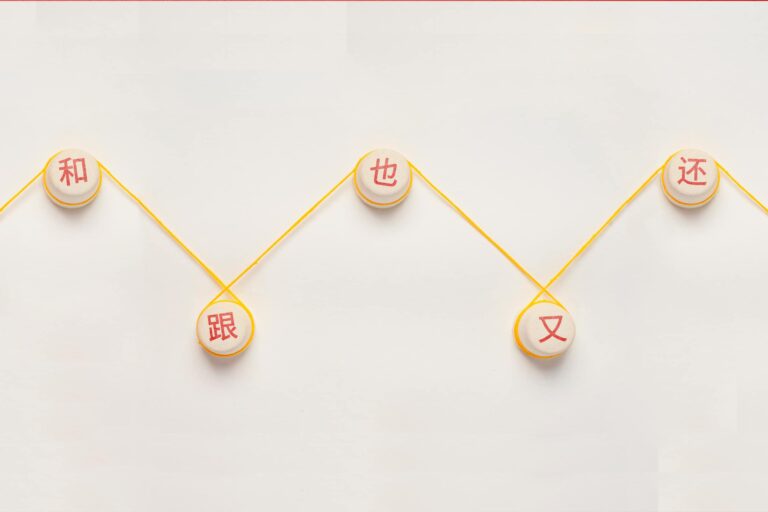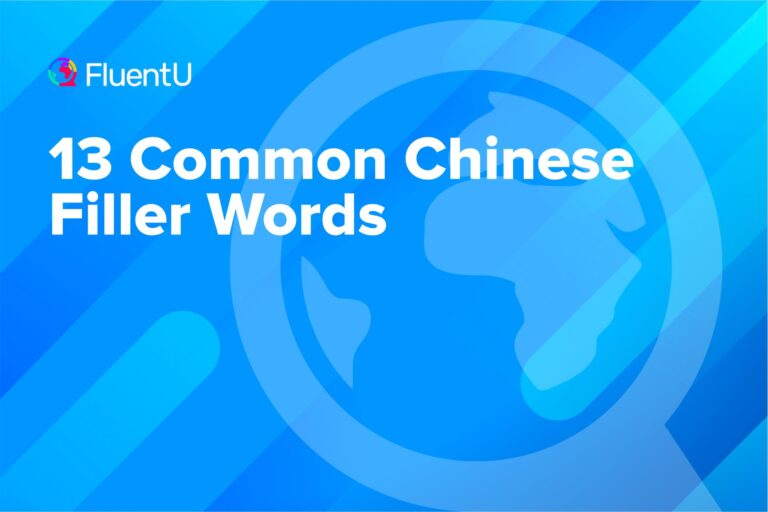The Ultimate Guide to 没有 (méi yǒu) in Chinese

Even if you’re new to Chinese, you’ll hear the word 没有 (méi yǒu) a lot.
It literally means “to not have,” but it can also mean that something hasn’t happened or that something doesn’t exist. It can be used to make comparisons and to deflect compliments, too.
Discover when and how to use 没有 in Chinese so you can use 没有 in sentences with ease.
Download: This blog post is available as a convenient and portable PDF that you can take anywhere. Click here to get a copy. (Download)
没有 — To not have
As mentioned above, 没 is used to negate the verb 有. When put together, 没有 is the negative form of 有, so it means “to not have.”
In sentences, 没有 follows the simple structure: subject + 没有 + object.
For example:
我没有苹果。 (wǒ méi yǒu píng guǒ.) — I don’t have apples.
她没有兄弟姐妹。 (tā méi yǒu xiōng dì jiě mèi.) — She doesn’t have siblings.
没有 — To say something hasn’t or didn’t happen
To tell someone that you haven’t done something before, use 没有.
Note that 有 is optional here. Native speakers often omit it and just use 没 to negate their sentences because it’s shorter. However, you can still find 没有 in its full form in these types of sentences, so practice using both.
To create a sentence, use the structure: subject + 没(有) + verb.
For example:
我没(有)看这场电影。 (wǒ méi [yǒu] kàn zhè chǎng diàn yǐng.) — I haven’t seen this movie/I didn’t see this movie.
我没(有)吃早饭。 (wǒ méi [yǒu] chī zǎo fàn.) — I haven’t eaten breakfast/I didn’t eat breakfast.
我还没(有)想好。 (wǒ hái méi [yǒu] xiǎng hǎo.) — I still haven’t made up my mind.
To say that something hasn’t ever happened before, it’s a little different.
You’d use 没 or 没有 along with 过 (guò), in a sentence structured like this: subject + 没(有) verb + 过.
For example:
我没(有)看过这场电影。 (wǒ méi [yǒu] kàn guò zhè chǎng diàn yǐng.) — I’ve never seen this movie before.
我没(有)吃过早饭。 (wǒ méi [yǒu] chī guò zǎo fàn.) — I’ve never eaten breakfast before.
我没(有)去过中国。 (wǒ méi [yǒu] qù guò zhōng guó.) — I’ve never been to China before.
没有 — To make comparisons
You can easily compare two things or people using 没有.
Structure the sentence as follows: subject + 没有 + object + verb/adjective/phrase.
Simple, right? Here are some examples:
我没有他中文说得那么好。 (wǒ méi yǒu tā zhōng wén shuō de nà me hǎo.) — I don’t speak Chinese as well as him.
你没有我高。 (nǐ méi yǒu wǒ gāo.) — You aren’t as tall as me.
沈阳没有北京的交通流量大。 (shěn yáng méi yǒu běi jīng de jiāo tōng liú liàng dà.) — Shenyang doesn’t have as much traffic as Beijing.
火车没有飞机快。 (huǒ chē méi yǒu fēi jī kuài.) — Trains aren’t as fast as airplanes.
Notice that the English translations all include the negative from 没. It’s like saying, “something doesn’t have something else’s blank.”
Instead of thinking trains aren’t as fast as airplanes, simply think trains don’t have airplanes’ fast. Or instead of thinking you aren’t as tall as me, think more like you don’t have my tall.
没有 — To say something doesn’t exist
You can say that something doesn’t exist by using 没有.
It’s not too different from English. Think about it: when we say “there’s no point” or “it’s useless,” we’re actually saying “a point doesn’t exist” or “a use doesn’t exist.”
Let’s take a look at some examples:
没有意义。 (méi yǒu yì yì.) — It’s pointless. (lit. to not have a point)
我跟你没有关系。 (wǒ gēn nǐ méi yǒu guān xi.) — I have nothing to do with you. (lit. I with you have no relationship)
(这)没有用。 ([zhè] méi yǒu yòng.) — This/It is useless. (lit. this has no use)
没事。 (méi shì.) — It’s nothing./It’s fine. (lit. there’s no matter)
没有没有 — To deflect compliments
And finally, you can use 没有 to deflect compliments.
In traditional Chinese culture, refusing to accept compliments is considered polite—and still is (to an extent).
For example, imagine that someone tells you 你说中文说的很好。 (nǐ shuō zhōng wén shuō de hěn hǎo.) — You speak Chinese well.
You might be tempted to say 谢谢 (xiè xiè) — Thank you. But in fact, it’s considered more polite to turn down the compliment.
Traditionally, the phrase 哪里哪里 (nǎ lǐ nǎ lǐ), meaning “where, where” was used to deflect compliments.
When I said this during my first conversation with my italki tutor, however, she laughed. She told me that nowadays, more people respond with phrases like 还行吧 (hái xíng ba) — it’s alright, or 没有没有 .
For example:
A: 你唱歌唱得那么好啊! (nǐ chàng gē chàng de nà me hǎo a!) — You sing so well!
B: 没有没有。 (méi yǒu méi yǒu.) — No, no.
不 vs. 没有: What’s the Difference?
At this point in your Chinese studies, you’ve probably already figured out that both 不 (bù) and 没有 can be used to mean “no.”
However, there’s a huge difference between these two tiny words.
Think of 不 as being used to describe habits. When paired with verbs, 不 means you don’t do something.
我不吃早饭。 (wǒ bù chī zǎo fàn.) — I don’t eat breakfast.
没有, on the other hand, means you haven’t done or didn’t do something in this instance.
我没(有)吃早饭。 (wǒ méi [yǒu] chī zǎo fàn.) — I haven’t eaten breakfast/I didn’t eat breakfast.
And remember that you will always use 没 to negate 有, and never 不. See how the meanings differ:
我不看书。 (wǒ bù kàn shū.) — I don’t read books.
我没有书。 (wǒ méi yǒu shū.) — I don’t have books.
Do you have those five meanings of the Chinese 没有 down? Practice the word to get its meaning down. For instance, you can practice them in context on the immersion program FluentU, which lets you see videos and clips of the word in use.
FluentU takes authentic videos—like music videos, movie trailers, news and inspiring talks—and turns them into personalized language learning lessons.
You can try FluentU for free for 2 weeks. Check out the website or download the iOS app or Android app.
P.S. Click here to take advantage of our current sale! (Expires at the end of this month.)
With practice, you’ll get it soon enough. 加油 (jiā yóu) — Keep going!
And One More Thing...
If you want to continue learning Chinese with interactive and authentic Chinese content, then you'll love FluentU.
FluentU naturally eases you into learning Chinese language. Native Chinese content comes within reach, and you'll learn Chinese as it's spoken in real life.
FluentU has a wide range of contemporary videos—like dramas, TV shows, commercials and music videos.
FluentU brings these native Chinese videos within reach via interactive captions. You can tap on any word to instantly look it up. All words have carefully written definitions and examples that will help you understand how a word is used. Tap to add words you'd like to review to a vocab list.
FluentU's Learn Mode turns every video into a language learning lesson. You can always swipe left or right to see more examples for the word you're learning.
The best part is that FluentU always keeps track of your vocabulary. It customizes quizzes to focus on areas that need attention and reminds you when it’s time to review what you’ve learned. You have a 100% personalized experience.
Start using the FluentU website on your computer or tablet or, better yet, download the FluentU app from the iTunes or Google Play store. Click here to take advantage of our current sale! (Expires at the end of this month.)











